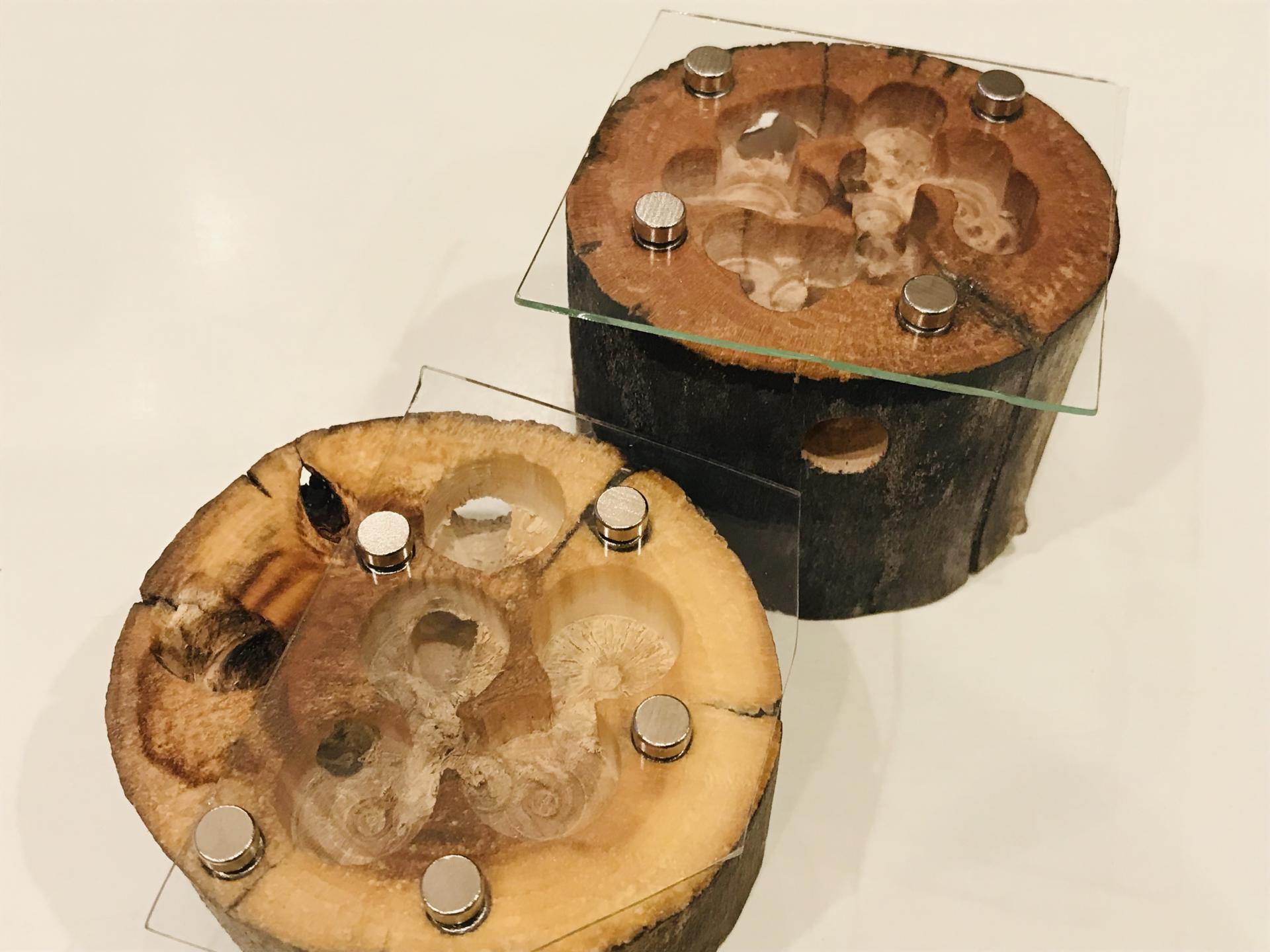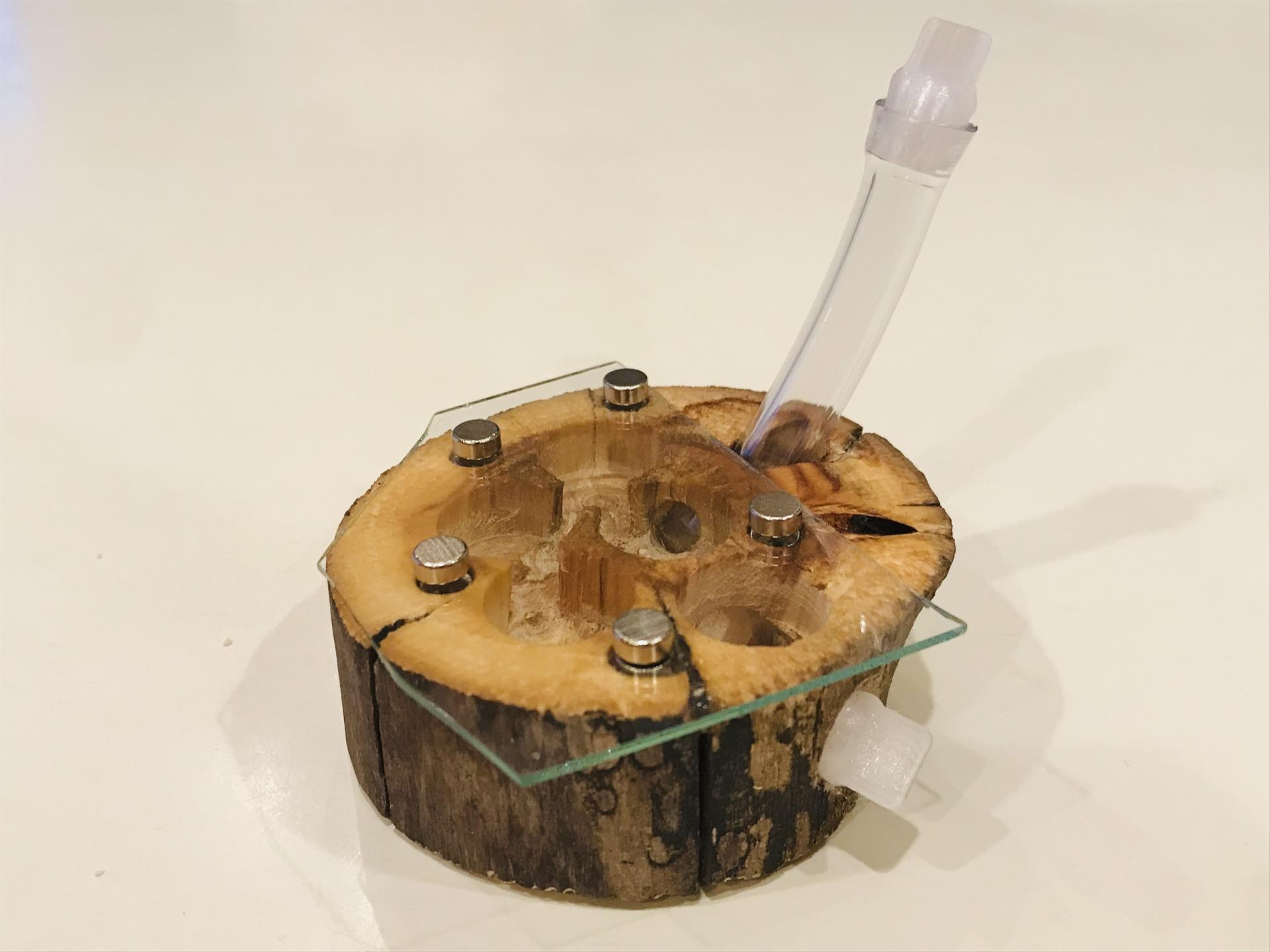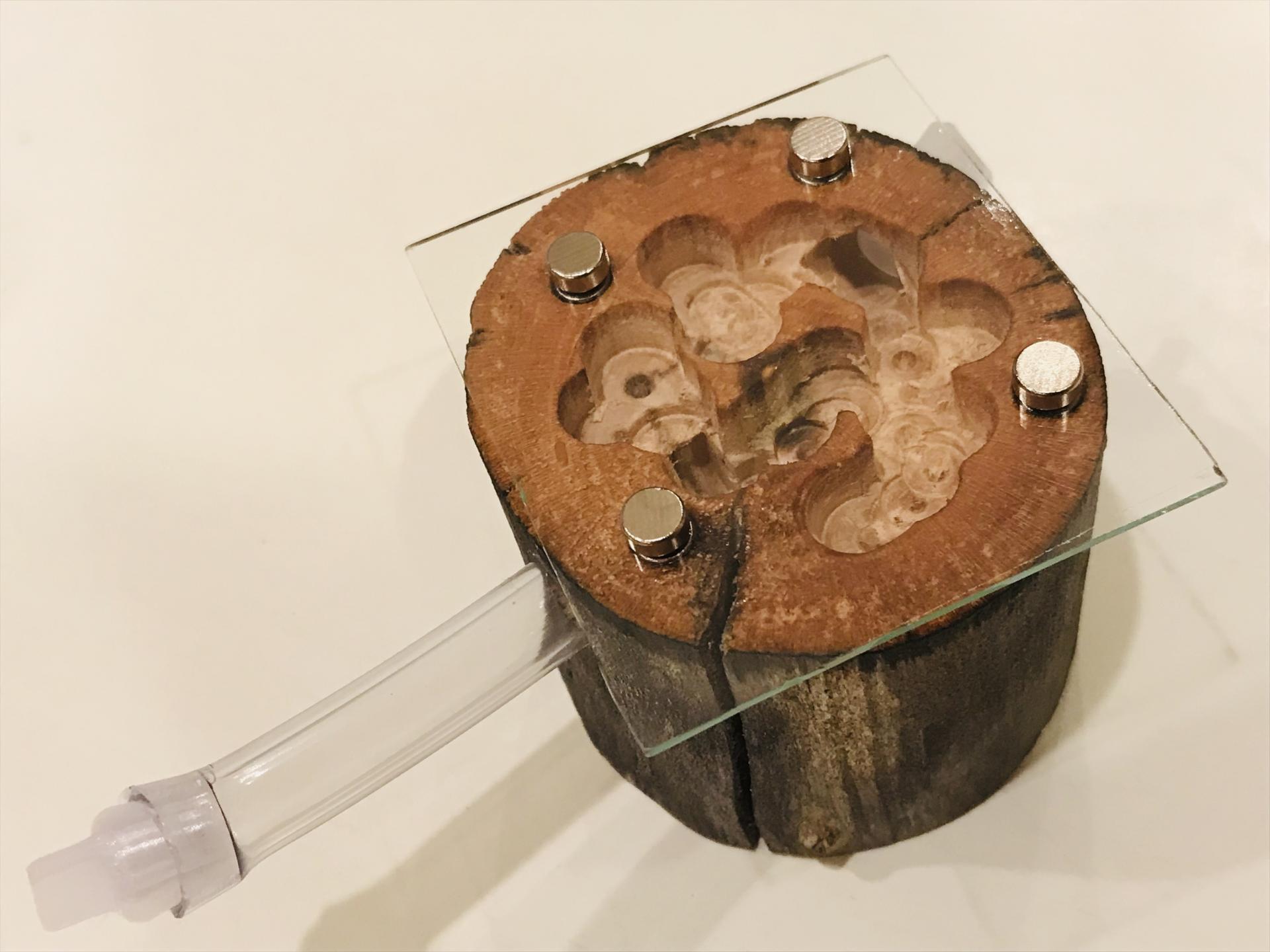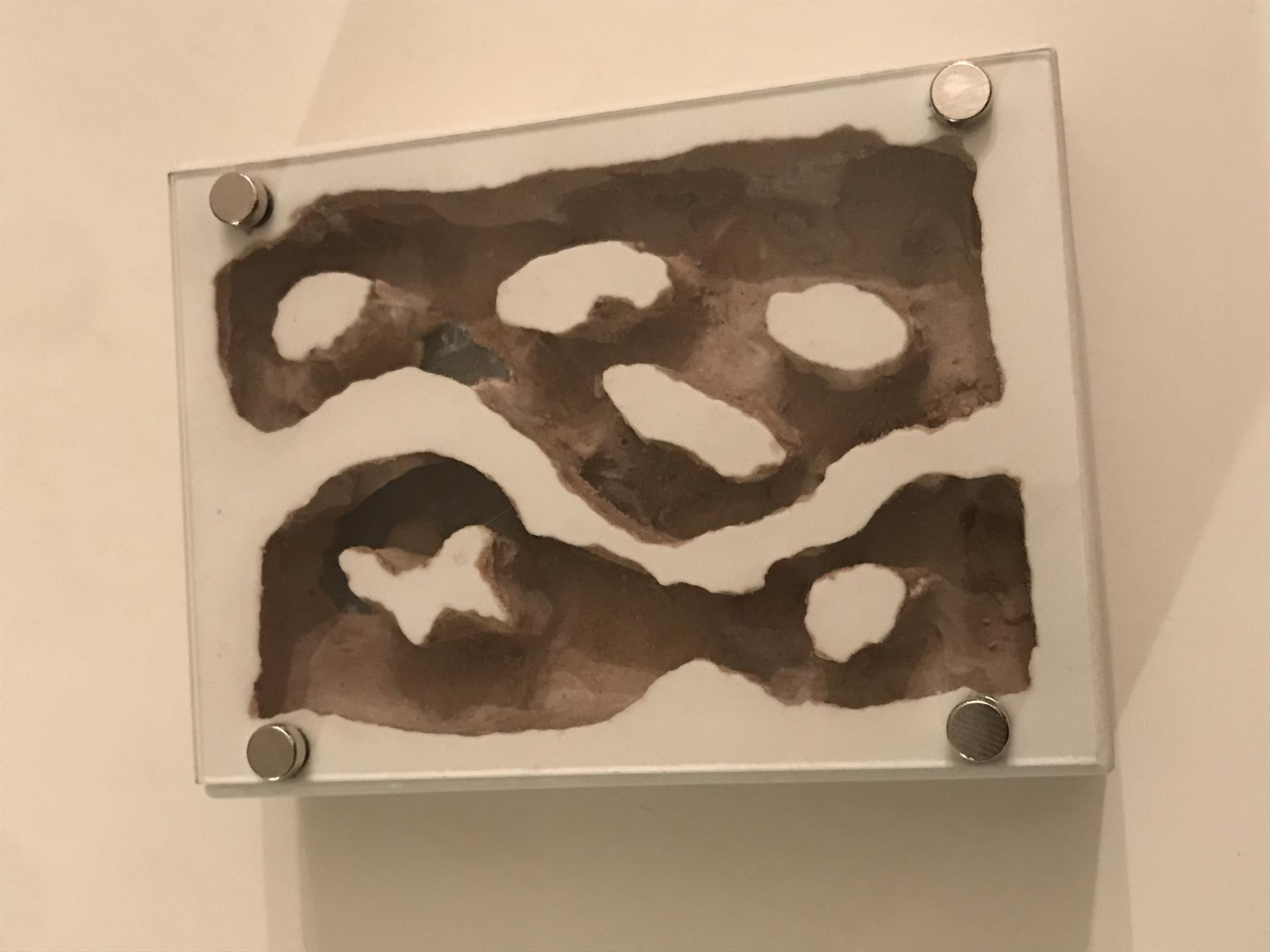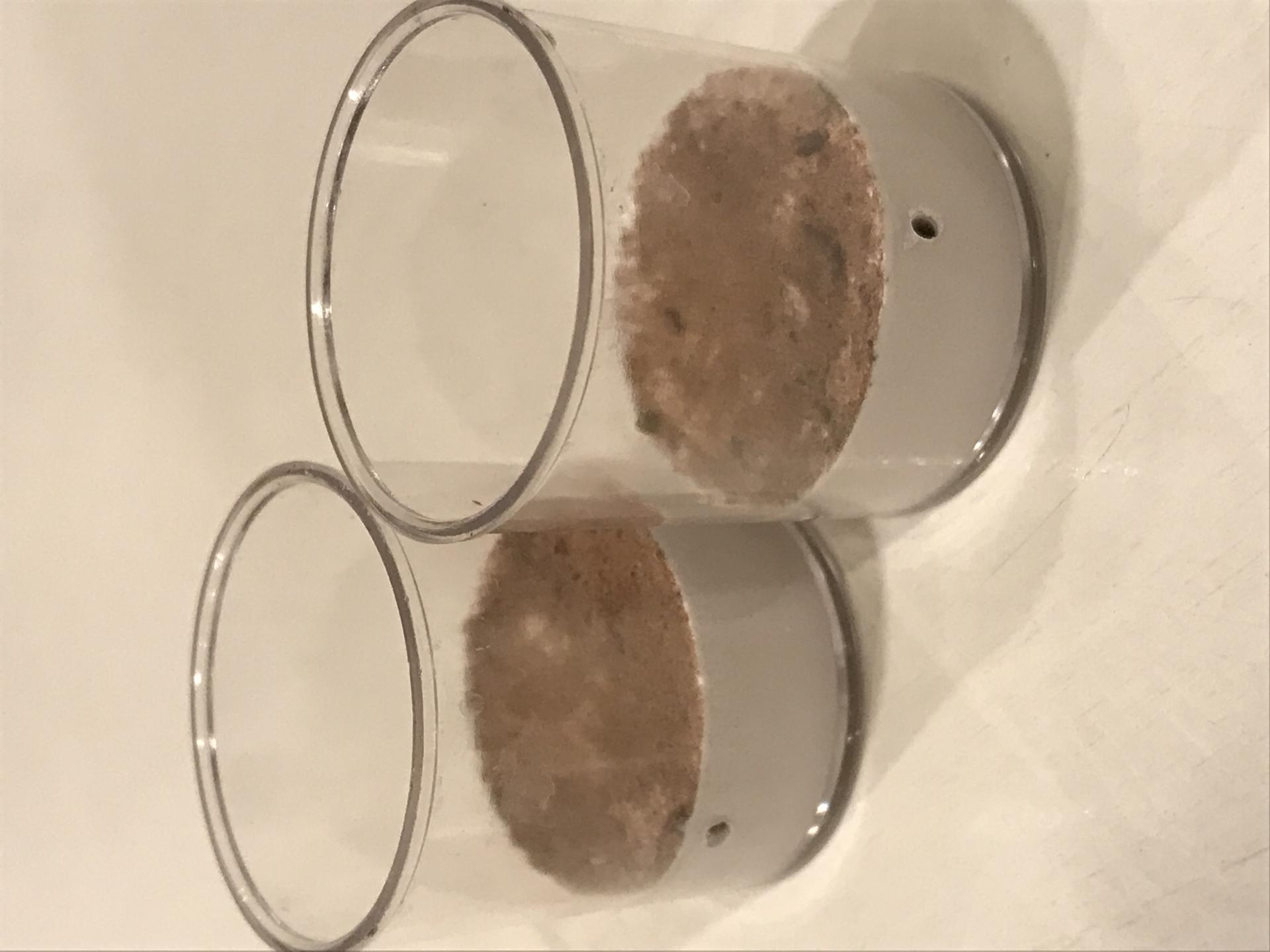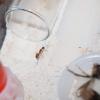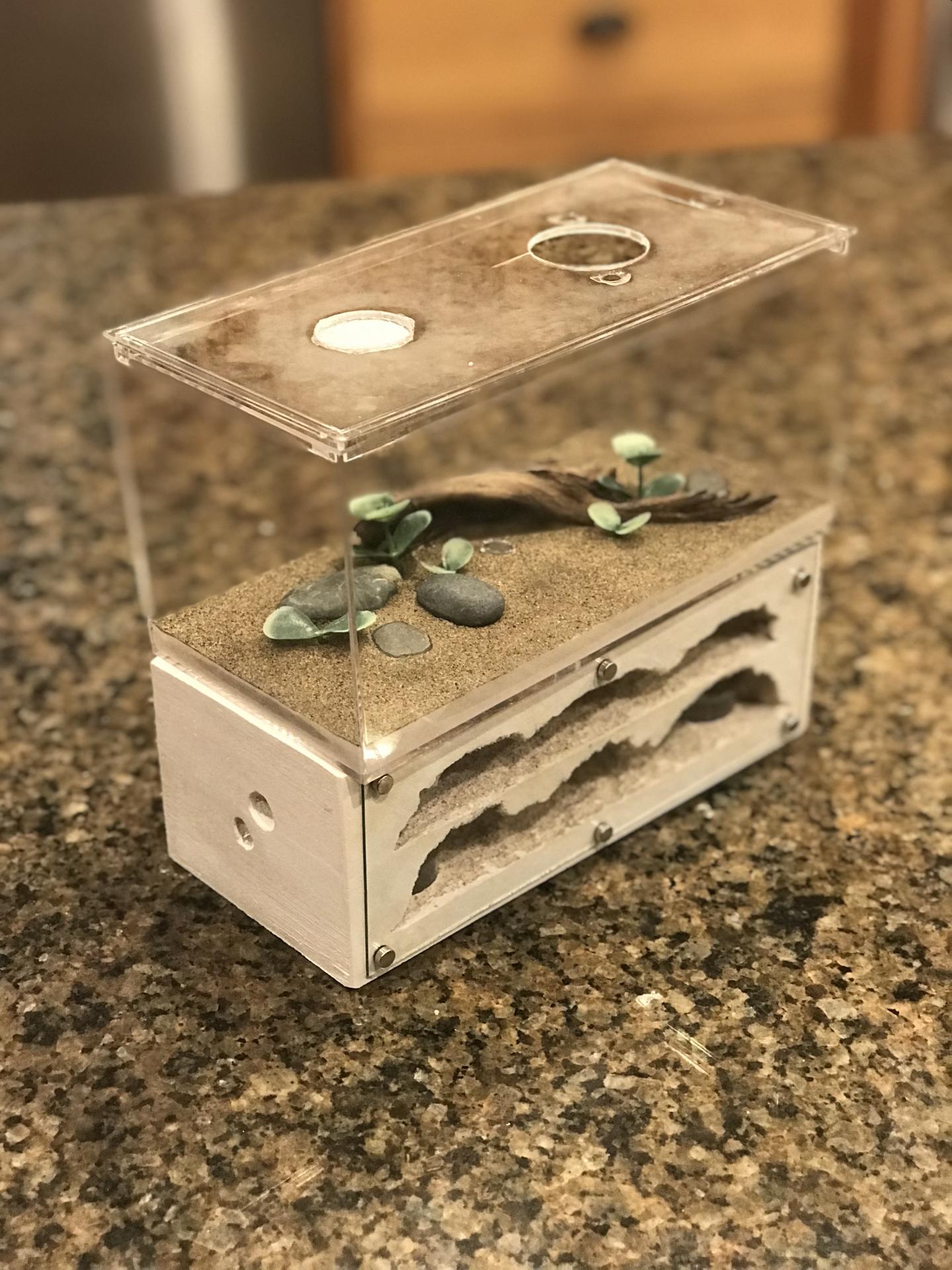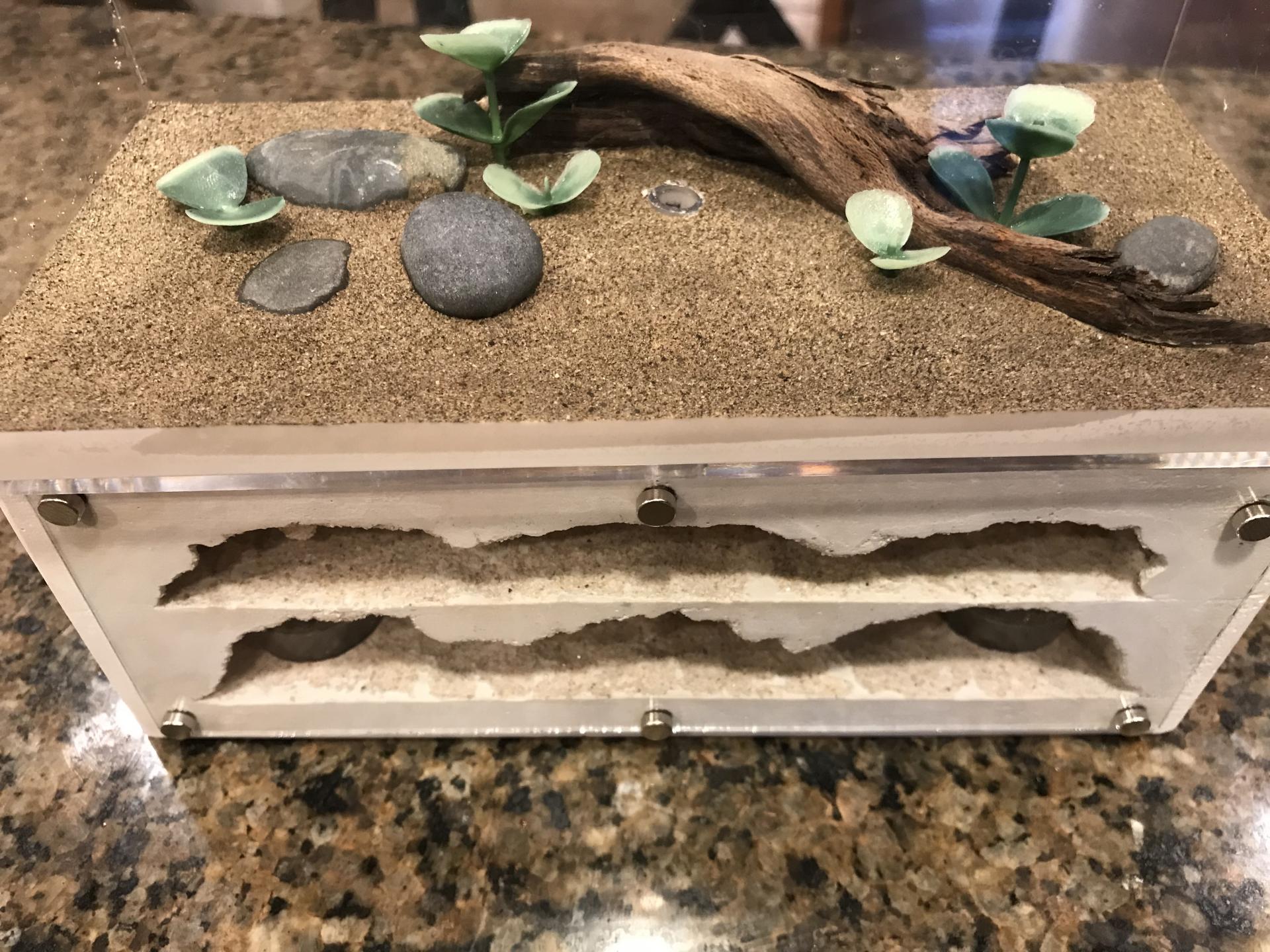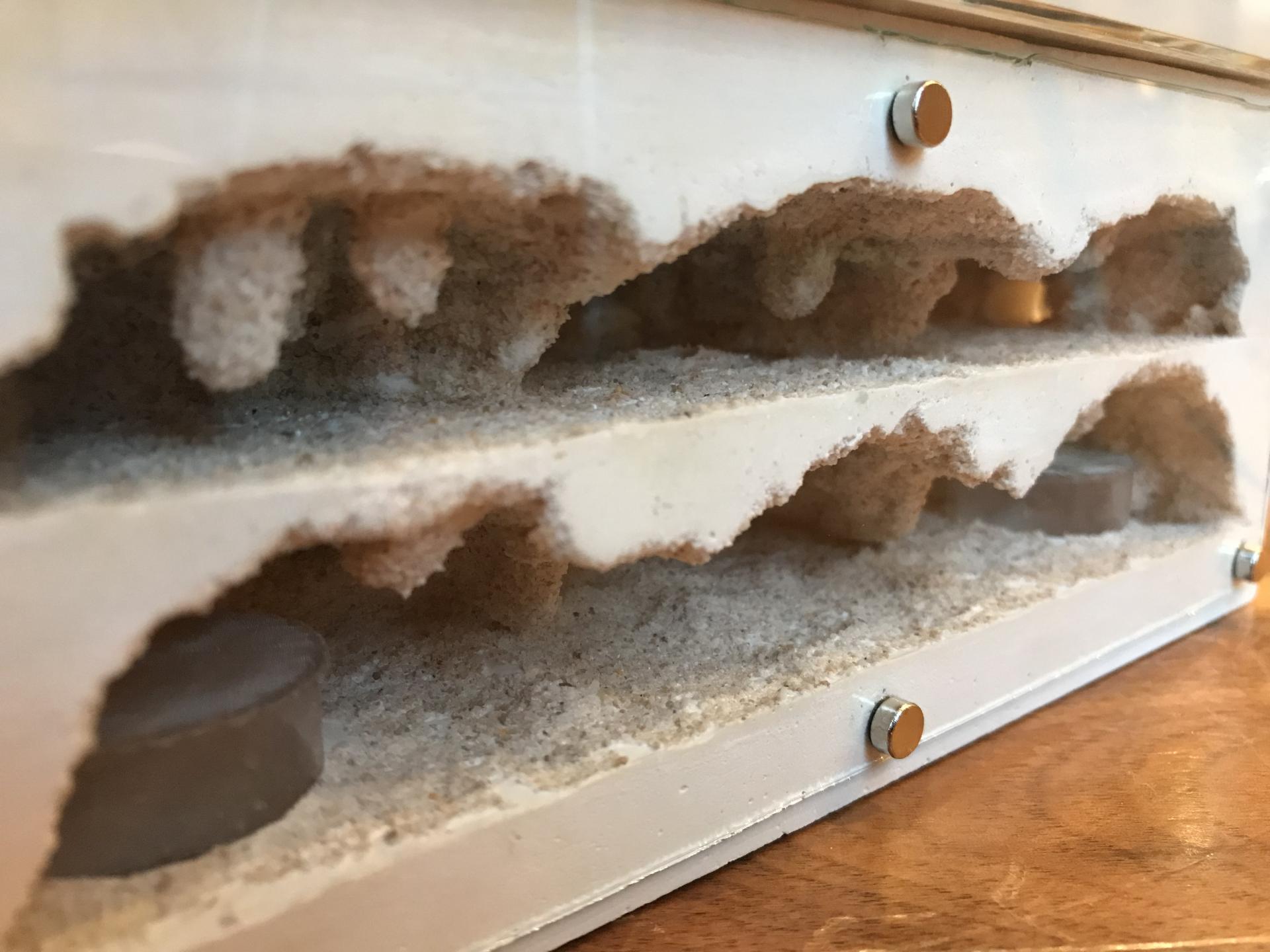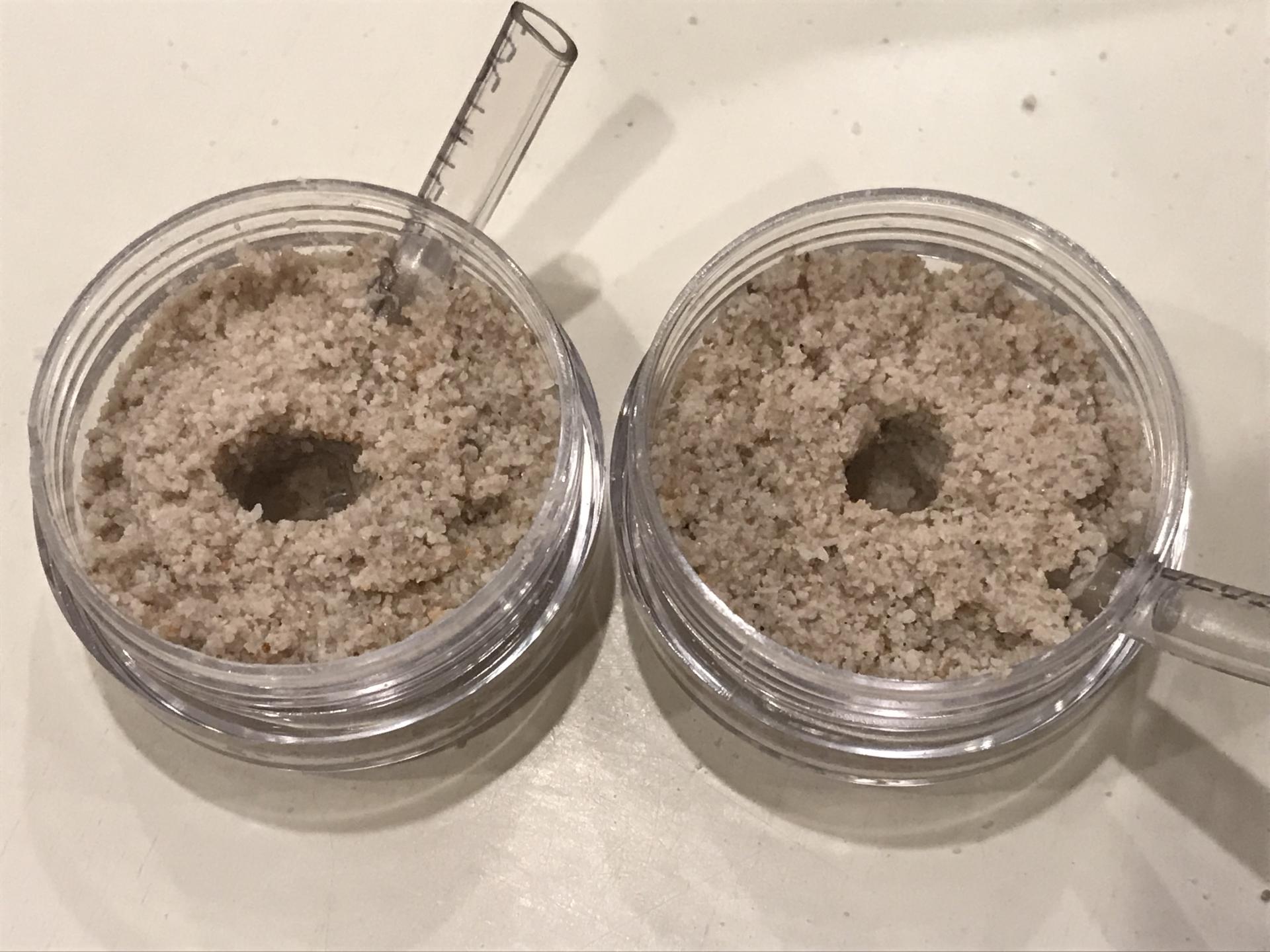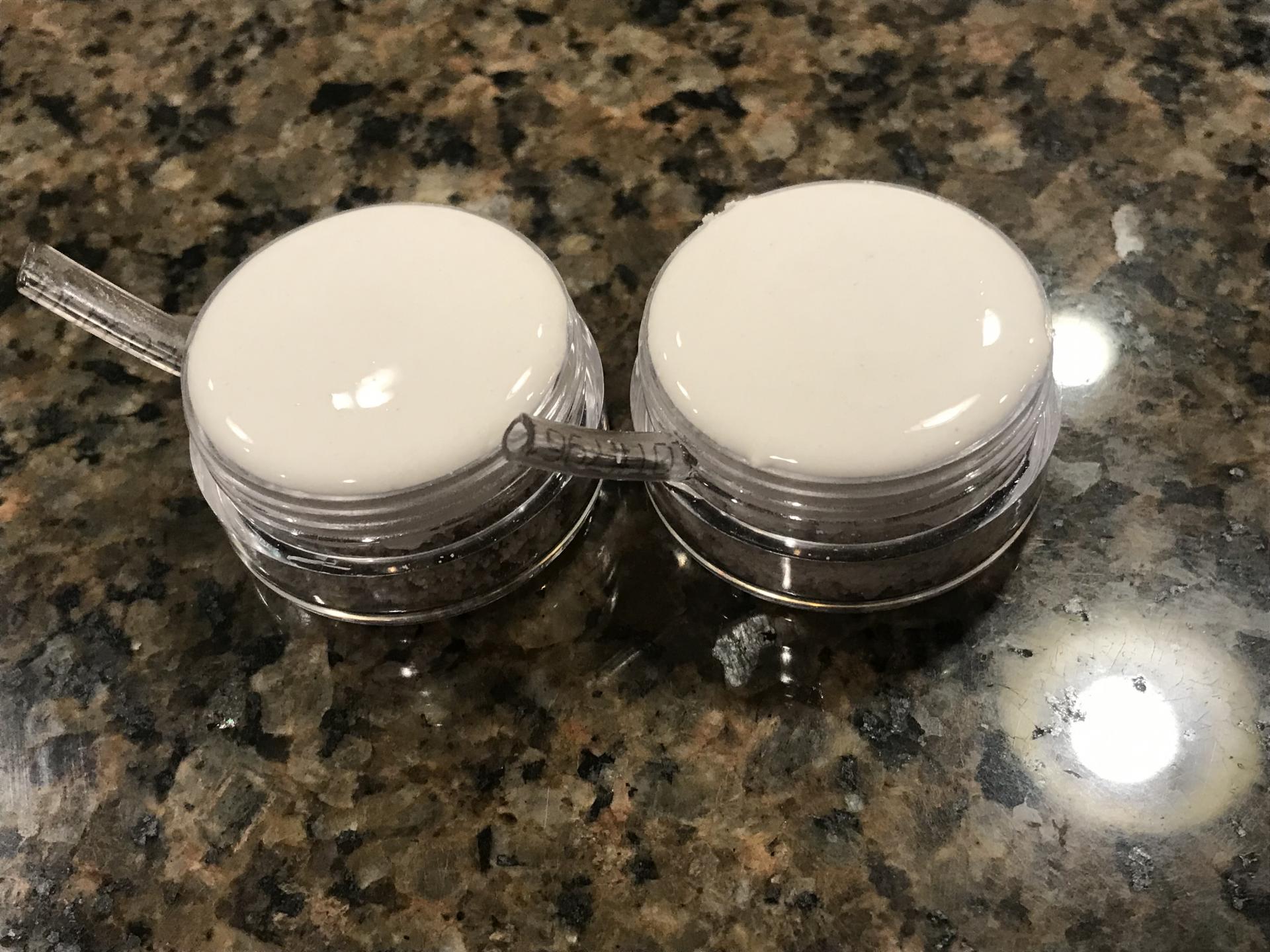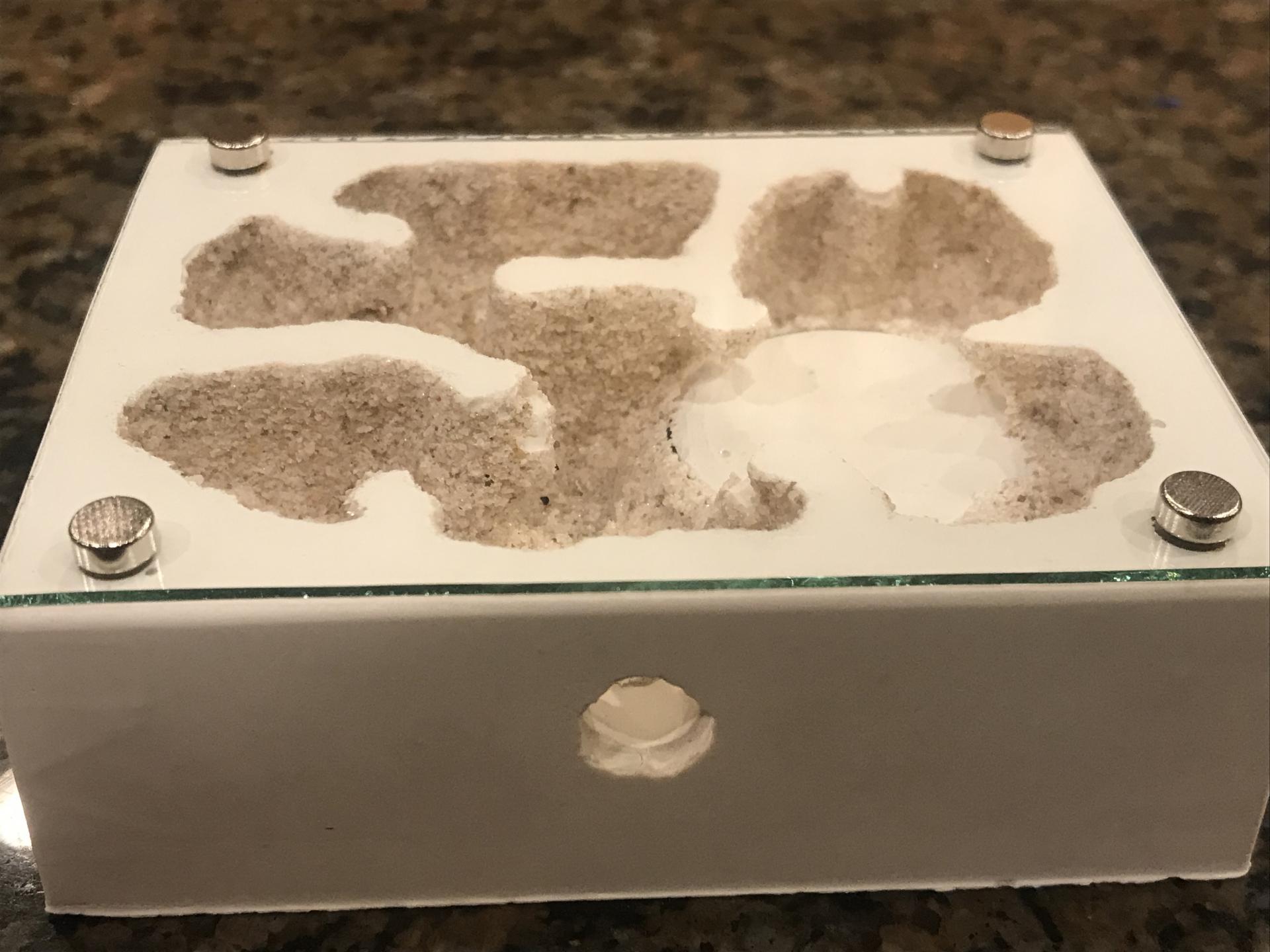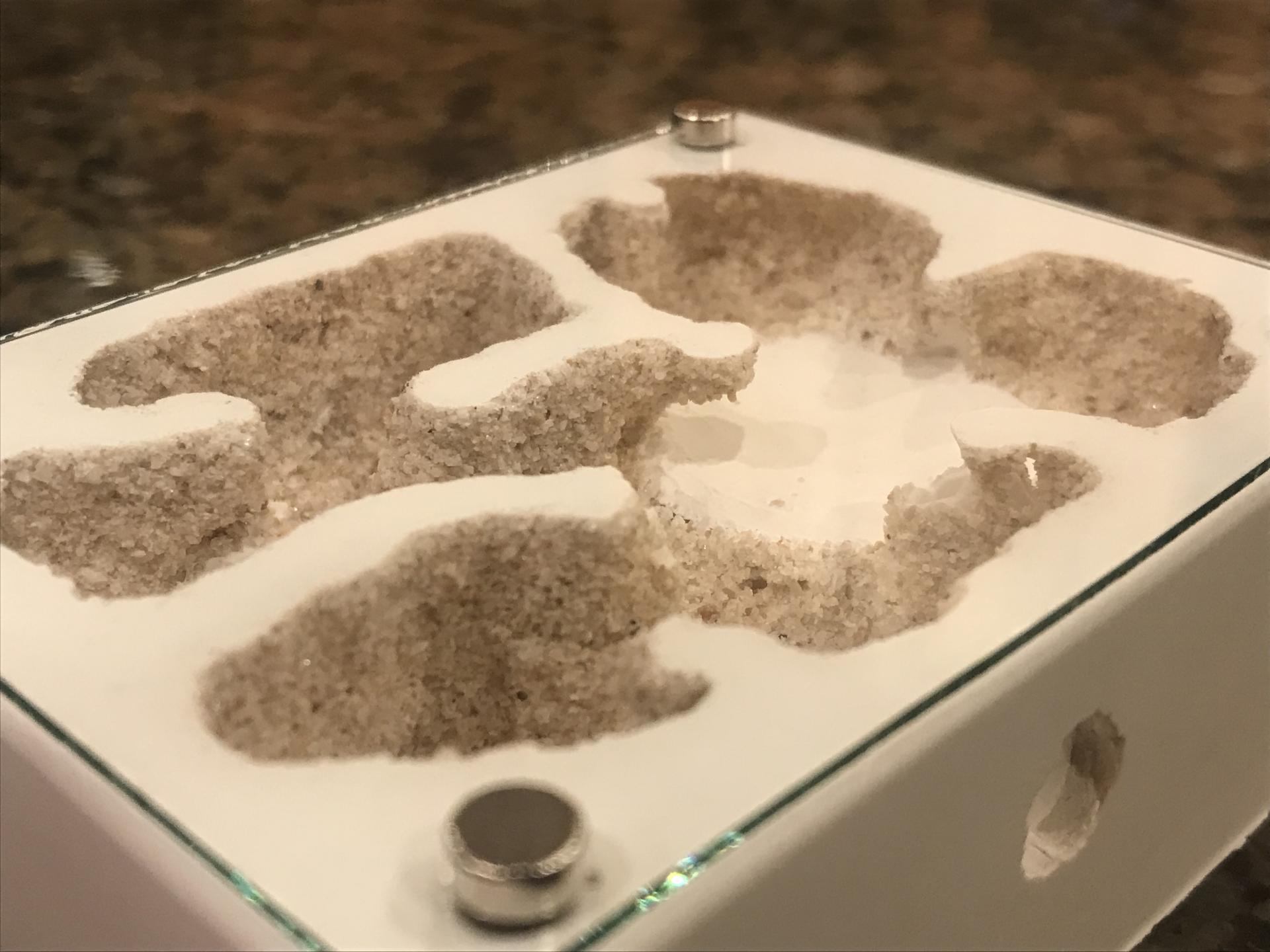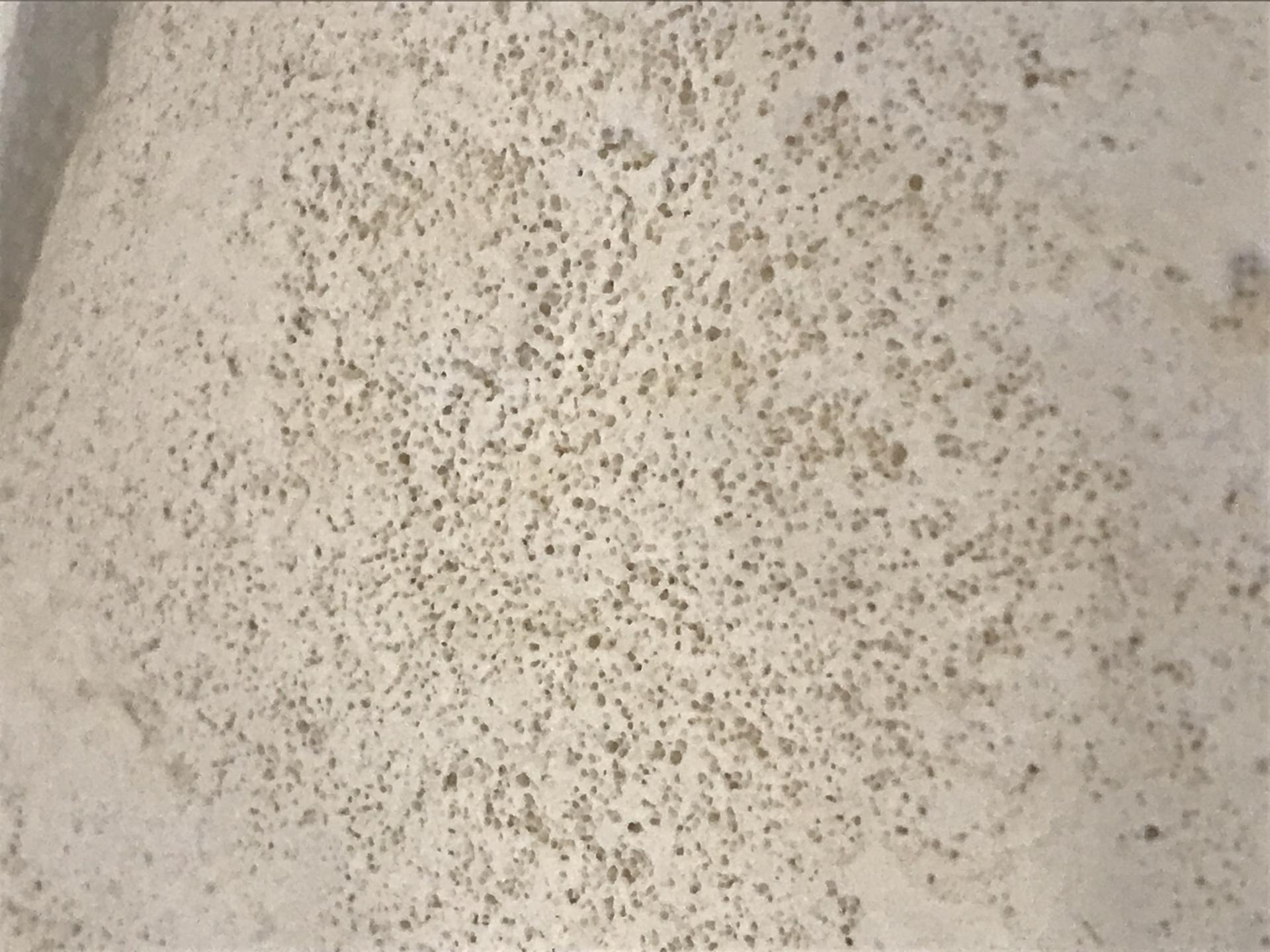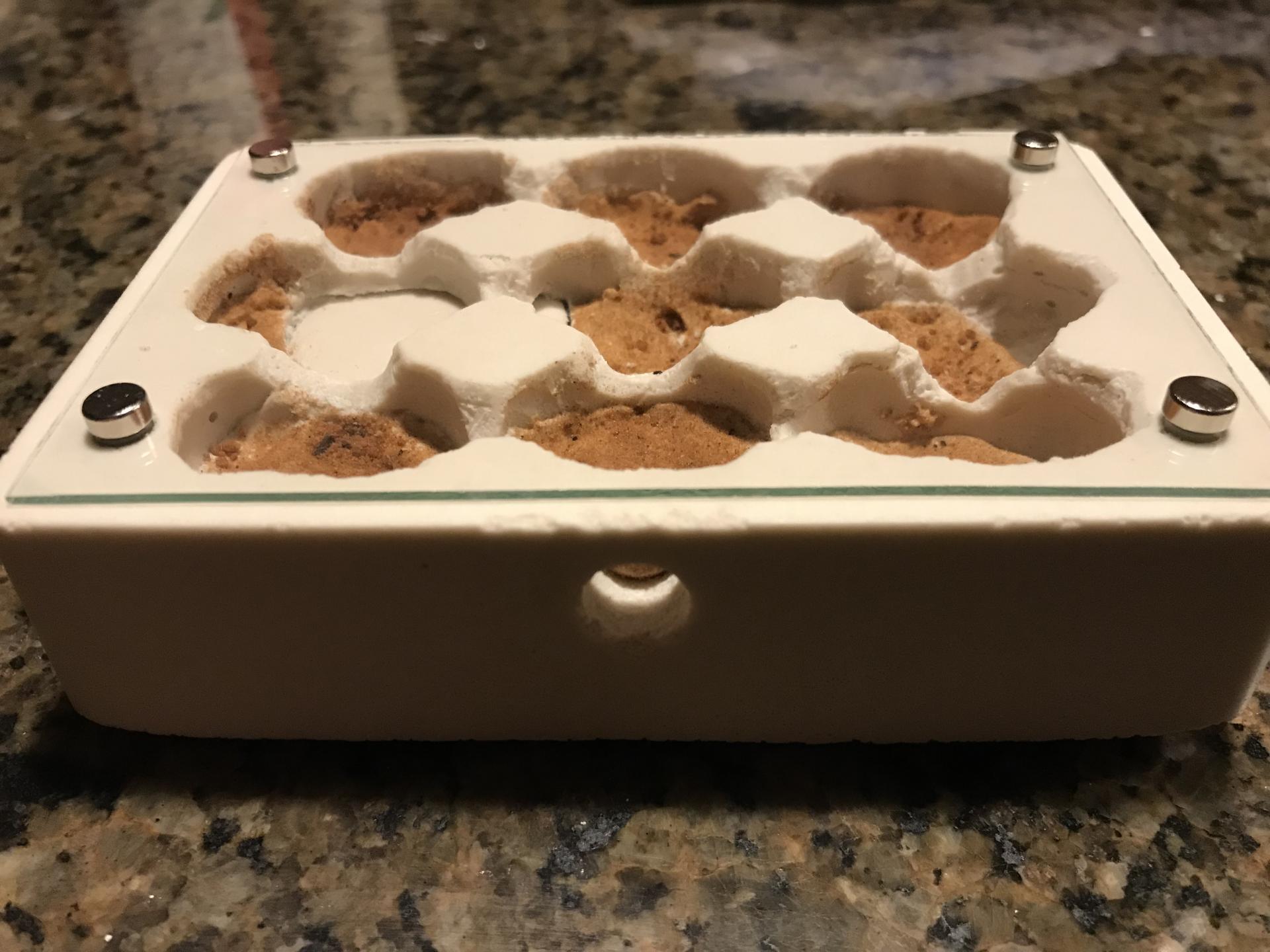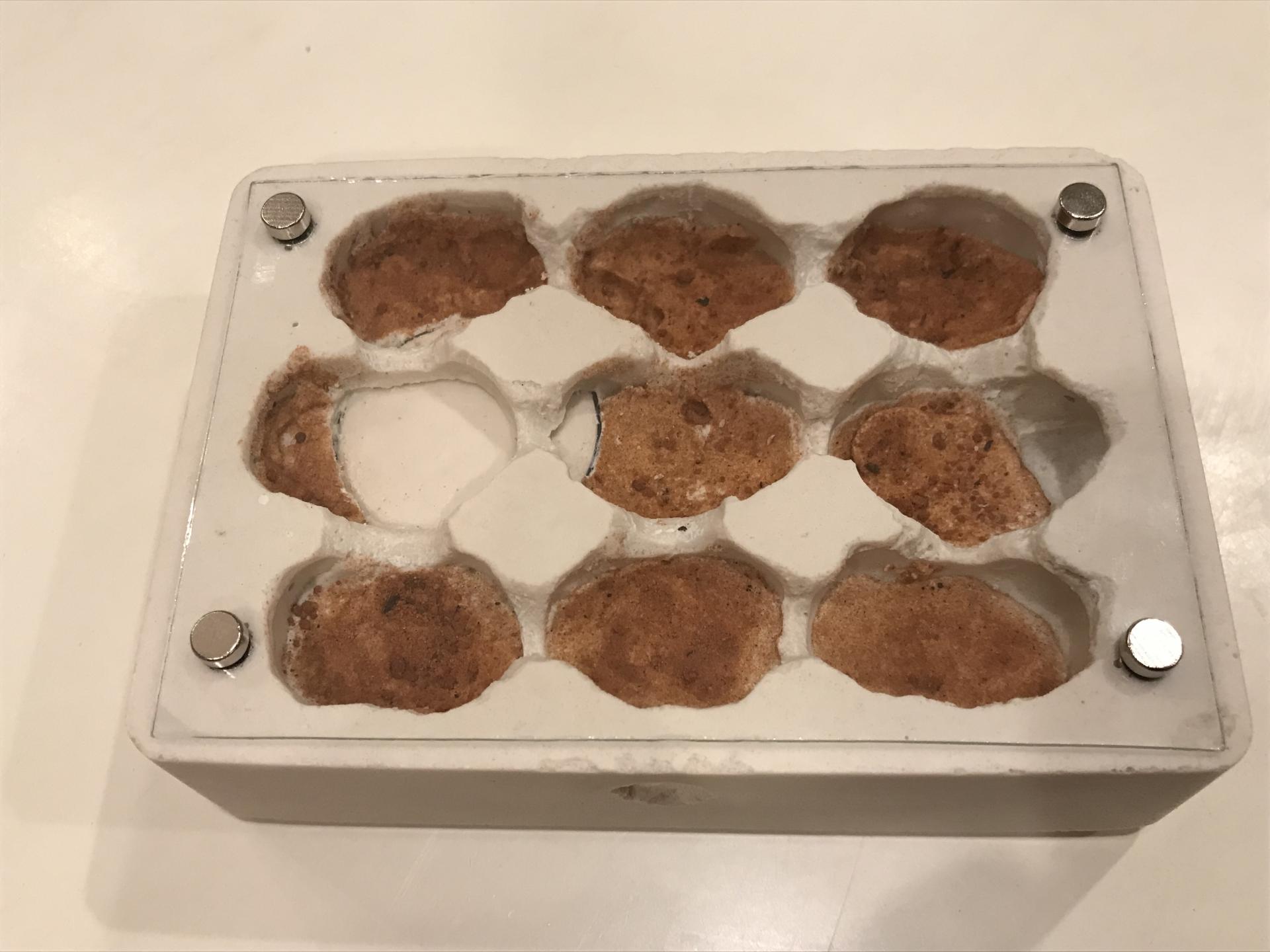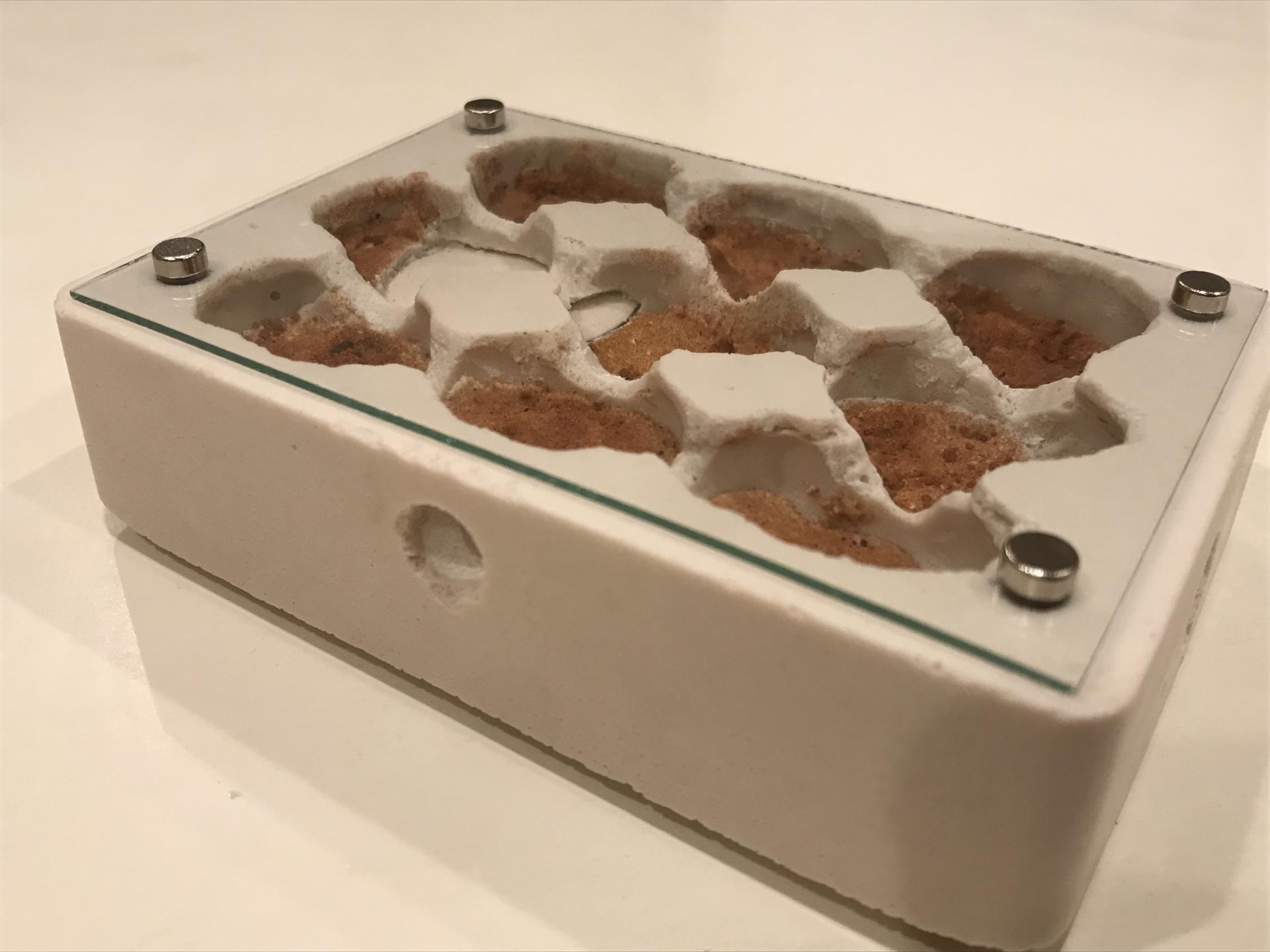- Formiculture.com
- Forums
- Gallery
- Members
- Member Map
- Chat
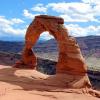
UtahAnts' Formicariums and Outworlds
Started By
UtahAnts
, Jan 7 2021 7:24 PM
formicariums nest hobby lobby perfect cast wood plaster formicarium firebrick grout images diy
293 replies to this topic
#41
 Offline
-
Posted December 18 2021 - 5:03 PM
Offline
-
Posted December 18 2021 - 5:03 PM
Made some new founding wood nests today. These natural wood nest setup are superior to a test tube in almost every way for wood living ants in my experience. I've never had a carpenter queen fail in one of these founding nests; I can't say the same for test tubes.
The process took me about half an hour for each nest. I took hard dead branches from a local forest. I used a chop saw to create about 20 cross sections from the two branches I collected, and I chose two flat cross sections out of the bunch. A drill press was used to create the chambers, tunnels, holes for the magnets, and entrances/tube ports. I glued the magnets and filled in the largest cracks with two part epoxy. After that the nests were basically done, I just sanded and applied a small amount of olive oil to the top of each nest. The olive oil is a cheaper alternative to linseed oil, the purpose of which is to bring out the colors and make the natural tree rings more noticeable.
For hydration, I try to avoid water towers for small wood nests like these. Small water tubes in the nest with cotton in one end and a plastic stopper in the other work much better in my experience.
I hope to make some larger wood nests once my Camponotus colonies grow to a suitable size. Until then, these circular cross section nests work great for Camponotus queens and small colonies (up to around 20 workers).
- ANTdrew, Antkeeper01, m99 and 1 other like this
Leave the Road, take the Trails - Pythagoras
Utah Ant Keeping --- Here
DIY Formicariums and Outworlds --- Here
Honeypot Ant Journal --- Here
Photo Album --- Here
Videos --- Here
#42
 Offline
-
Posted December 18 2021 - 7:56 PM
Offline
-
Posted December 18 2021 - 7:56 PM
Love the ideas of wood nests for ants. Pity here the ants that live in wood like mainly rotting wood. If you hand made a wood nest here and added water, It would mould up so quickly and bad. Too humid environment for it. Then your just asking for a stray termite to come and land on the wood and make a nest inside. Welcome to Australia xD
Lovely made nests though! very cute and functionable.
- Antkeeper01 and UtahAnts like this
Favourite Genus: Polyrhachis
Journal: Main
YouTube: Australian Polyrhachis
Instagram: australian_polyrhachis
May God Bless you.
#43
 Offline
-
Posted December 18 2021 - 8:10 PM
Offline
-
Posted December 18 2021 - 8:10 PM
Genius again!
- PaigeX likes this
"The ants are a people not strong, yet they prepare their meat in the summer." Prov. 30:25
Keep ordinary ants in extraordinary ways.
Keep ordinary ants in extraordinary ways.
#44
 Offline
-
Posted December 18 2021 - 8:36 PM
Offline
-
Posted December 18 2021 - 8:36 PM
Love the ideas of wood nests for ants. Pity here the ants that live in wood like mainly rotting wood. If you hand made a wood nest here and added water, It would mould up so quickly and bad. Too humid environment for it. Then your just asking for a stray termite to come and land on the wood and make a nest inside. Welcome to Australia xD
Lovely made nests though! very cute and functionable.
Have you tried a closed bio-active ecosystem? As long as the wood is in a closed container, and you have a sufficient number of springtails, termites and mold shouldn't necessarily be a problem. That said, I'm sure you have some species of wood dwelling ants in Austrialia that don't need moisture in their nests.
- PaigeX likes this
Leave the Road, take the Trails - Pythagoras
Utah Ant Keeping --- Here
DIY Formicariums and Outworlds --- Here
Honeypot Ant Journal --- Here
Photo Album --- Here
Videos --- Here
#45
 Offline
-
Posted January 14 2022 - 8:58 PM
Offline
-
Posted January 14 2022 - 8:58 PM
I tried my hand at making a nest specifically for T. immigrans colony for a customer. I noticed that in wild nests, the tunnels are relatively tight, and the ants use the random orientation of intersecting tunnels to make chambers. I tried to do something similar here.
The image of the wild ants doesn't do the tunnel structure justice, but it was the only photo of a Tetramorium nest on my phone at the moment.
On another note, here's some simple container nests with a Perfect Cast/soil base. I also drilled small hydration holes in the side of the container and base to make watering the nest less stressful for species I plan on housing in these types of nests. Each nest costs around 20 cents to make, making these container formicariums a prime competitor to test tubes in regards to price and effectiveness.
- ANTdrew, Antkeeper01, TacticalHandleGaming and 2 others like this
Leave the Road, take the Trails - Pythagoras
Utah Ant Keeping --- Here
DIY Formicariums and Outworlds --- Here
Honeypot Ant Journal --- Here
Photo Album --- Here
Videos --- Here
#46
 Offline
-
Posted January 15 2022 - 3:30 PM
Offline
-
Posted January 15 2022 - 3:30 PM
Made some new founding wood nests today. These natural wood nest setup are superior to a test tube in almost every way for wood living ants in my experience. I've never had a carpenter queen fail in one of these founding nests; I can't say the same for test tubes.The process took me about half an hour for each nest. I took hard dead branches from a local forest. I used a chop saw to create about 20 cross sections from the two branches I collected, and I chose two flat cross sections out of the bunch. A drill press was used to create the chambers, tunnels, holes for the magnets, and entrances/tube ports. I glued the magnets and filled in the largest cracks with two part epoxy. After that the nests were basically done, I just sanded and applied a small amount of olive oil to the top of each nest. The olive oil is a cheaper alternative to linseed oil, the purpose of which is to bring out the colors and make the natural tree rings more noticeable.For hydration, I try to avoid water towers for small wood nests like these. Small water tubes in the nest with cotton in one end and a plastic stopper in the other work much better in my experience.I hope to make some larger wood nests once my Camponotus colonies grow to a suitable size. Until then, these circular cross section nests work great for Camponotus queens and small colonies (up to around 20 workers).
OMG how did you make the wood nests? I try to make wood nests with mount lemmon pine and everytime I try to dremel the nest into the wood it doesn't work.
#47
 Offline
-
Posted January 15 2022 - 6:57 PM
Offline
-
Posted January 15 2022 - 6:57 PM
Made some new founding wood nests today. These natural wood nest setup are superior to a test tube in almost every way for wood living ants in my experience. I've never had a carpenter queen fail in one of these founding nests; I can't say the same for test tubes.The process took me about half an hour for each nest. I took hard dead branches from a local forest. I used a chop saw to create about 20 cross sections from the two branches I collected, and I chose two flat cross sections out of the bunch. A drill press was used to create the chambers, tunnels, holes for the magnets, and entrances/tube ports. I glued the magnets and filled in the largest cracks with two part epoxy. After that the nests were basically done, I just sanded and applied a small amount of olive oil to the top of each nest. The olive oil is a cheaper alternative to linseed oil, the purpose of which is to bring out the colors and make the natural tree rings more noticeable.For hydration, I try to avoid water towers for small wood nests like these. Small water tubes in the nest with cotton in one end and a plastic stopper in the other work much better in my experience.I hope to make some larger wood nests once my Camponotus colonies grow to a suitable size. Until then, these circular cross section nests work great for Camponotus queens and small colonies (up to around 20 workers).
OMG how did you make the wood nests? I try to make wood nests with mount lemmon pine and everytime I try to dremel the nest into the wood it doesn't work.
I used a drill press and only used a dremel to to smooth the edges between each hole. If you don't have a drill press, a Dremel can be used if the wood is soft enough. You can also likely access a press at your local high school's wood shop.
I wouldn't recommend using pine though, almost any other wild wood will work better. I try to stick with oak trees near me such as Gambel Oaks, which have very tough branches.
- TacticalHandleGaming likes this
Leave the Road, take the Trails - Pythagoras
Utah Ant Keeping --- Here
DIY Formicariums and Outworlds --- Here
Honeypot Ant Journal --- Here
Photo Album --- Here
Videos --- Here
#48
 Offline
-
Posted January 16 2022 - 4:18 PM
Offline
-
Posted January 16 2022 - 4:18 PM
Made some new founding wood nests today. These natural wood nest setup are superior to a test tube in almost every way for wood living ants in my experience. I've never had a carpenter queen fail in one of these founding nests; I can't say the same for test tubes.The process took me about half an hour for each nest. I took hard dead branches from a local forest. I used a chop saw to create about 20 cross sections from the two branches I collected, and I chose two flat cross sections out of the bunch. A drill press was used to create the chambers, tunnels, holes for the magnets, and entrances/tube ports. I glued the magnets and filled in the largest cracks with two part epoxy. After that the nests were basically done, I just sanded and applied a small amount of olive oil to the top of each nest. The olive oil is a cheaper alternative to linseed oil, the purpose of which is to bring out the colors and make the natural tree rings more noticeable.For hydration, I try to avoid water towers for small wood nests like these. Small water tubes in the nest with cotton in one end and a plastic stopper in the other work much better in my experience.I hope to make some larger wood nests once my Camponotus colonies grow to a suitable size. Until then, these circular cross section nests work great for Camponotus queens and small colonies (up to around 20 workers).
OMG how did you make the wood nests? I try to make wood nests with mount lemmon pine and everytime I try to dremel the nest into the wood it doesn't work.
I used a drill press and only used a dremel to to smooth the edges between each hole. If you don't have a drill press, a Dremel can be used if the wood is soft enough. You can also likely access a press at your local high school's wood shop.
I wouldn't recommend using pine though, almost any other wild wood will work better. I try to stick with oak trees near me such as Gambel Oaks, which have very tough branches.
Question. What's wrong with pine? Is it because it's a really hard wood type? I'm trying to go with the native wood that carpenter ants on mount lemmon live in during hibernation but if it won't work then I won't use pine wood.
#49
 Offline
-
Posted January 16 2022 - 4:35 PM
Offline
-
Posted January 16 2022 - 4:35 PM
Pine is technically a soft wood. I bet the ants could chew out of it relatively quickly.
- Antkeeper01 and mazmurlo like this
"The ants are a people not strong, yet they prepare their meat in the summer." Prov. 30:25
Keep ordinary ants in extraordinary ways.
Keep ordinary ants in extraordinary ways.
#50
 Offline
-
Posted January 16 2022 - 10:14 PM
Offline
-
Posted January 16 2022 - 10:14 PM
Made some new founding wood nests today. These natural wood nest setup are superior to a test tube in almost every way for wood living ants in my experience. I've never had a carpenter queen fail in one of these founding nests; I can't say the same for test tubes.The process took me about half an hour for each nest. I took hard dead branches from a local forest. I used a chop saw to create about 20 cross sections from the two branches I collected, and I chose two flat cross sections out of the bunch. A drill press was used to create the chambers, tunnels, holes for the magnets, and entrances/tube ports. I glued the magnets and filled in the largest cracks with two part epoxy. After that the nests were basically done, I just sanded and applied a small amount of olive oil to the top of each nest. The olive oil is a cheaper alternative to linseed oil, the purpose of which is to bring out the colors and make the natural tree rings more noticeable.For hydration, I try to avoid water towers for small wood nests like these. Small water tubes in the nest with cotton in one end and a plastic stopper in the other work much better in my experience.I hope to make some larger wood nests once my Camponotus colonies grow to a suitable size. Until then, these circular cross section nests work great for Camponotus queens and small colonies (up to around 20 workers).
OMG how did you make the wood nests? I try to make wood nests with mount lemmon pine and everytime I try to dremel the nest into the wood it doesn't work.
I used a drill press and only used a dremel to to smooth the edges between each hole. If you don't have a drill press, a Dremel can be used if the wood is soft enough. You can also likely access a press at your local high school's wood shop.
I wouldn't recommend using pine though, almost any other wild wood will work better. I try to stick with oak trees near me such as Gambel Oaks, which have very tough branches.
Question. What's wrong with pine? Is it because it's a really hard wood type? I'm trying to go with the native wood that carpenter ants on mount lemmon live in during hibernation but if it won't work then I won't use pine wood.
Pine is technically a soft wood. I bet the ants could chew out of it relatively quickly.
After a little research, the only pines on Mount Lemmon that I would even think of using for a nest would be White Pine species. Although white pines are notoriously soft, to ANTdrew's point, this type of wood is often used in carving, meaning you could likely have some success using a Dremel to carve. Just have some extra nests on hand just in case the ants do end up chewing through.
In general though, I find pines hard to work with when drilling or carving. The irregular grains on pines make it hard to get a clean cut, not to mention how easily the wood splinters and falls apart while carving. I also find natural pines deteriorate faster and are more susceptible to temperature changes then wild hardwoods.
- ANTdrew likes this
Leave the Road, take the Trails - Pythagoras
Utah Ant Keeping --- Here
DIY Formicariums and Outworlds --- Here
Honeypot Ant Journal --- Here
Photo Album --- Here
Videos --- Here
#51
 Offline
-
Posted January 17 2022 - 10:16 AM
Offline
-
Posted January 17 2022 - 10:16 AM
#52
 Offline
-
Posted January 18 2022 - 5:51 PM
Offline
-
Posted January 18 2022 - 5:51 PM
Another handmade nest, if you can't tell, this one was designed for a customer who wanted a nest similar to the 3-leveled nest (see page 2).
If I could choose, I think Camponotus and Myrmecocystus would do best in this type of formicarium, due to it's high chambers (averaging an inch in height). If I catch any 'pots this upcoming season, I'll definitely be making more of these to accommodate them.
In the image below, the lid of the outworld had a bit of condensation because I had just attached the vent magnets using epoxy on my back porch.
Edited by UtahAnts, January 19 2022 - 5:08 PM.
- ANTdrew, cocdeshijie, AntBoi3030 and 4 others like this
Leave the Road, take the Trails - Pythagoras
Utah Ant Keeping --- Here
DIY Formicariums and Outworlds --- Here
Honeypot Ant Journal --- Here
Photo Album --- Here
Videos --- Here
#53
 Offline
-
Posted January 18 2022 - 6:29 PM
Offline
-
Posted January 18 2022 - 6:29 PM
And Mack doesn't sue you for doing that? I'm so worried about Mack suing me if I sold my versions of THA nests. If he actually hasn't sued you I might just sell my own variations of certain Tar Heel Ants Nests because the only reason I don't sell my variations of his ant nests to people is because I'm scared of being sued.
Edited by NicholasP, January 18 2022 - 6:31 PM.
- PaigeX likes this
#54
 Offline
-
Posted January 18 2022 - 10:06 PM
Offline
-
Posted January 18 2022 - 10:06 PM
First of all, Mack technically can't sue me for something he never got around to patenting himself. After searching the USPTO database, I found nothing. And secondly, I'm not a business entity. I have no business organization. As I've mentioned earlier in this thread, I don't have a product line, website, or any direct way to order pre-made nests. Other sellers that have gotten in trouble with THA have used sites like Etsy or Ebay, creating their own seller platform.
Please correct me if I'm wrong on any of the above points, I don't want to get in legal trouble myself. However, people should stop fearing an entity that has, unfortunately, subtly encouraged a stagnant nature in the growth of many ant keeping businesses, and clouded the legal ability of itself and individual sellers to create formicaria freely.
I want to restate that I respect Tar Heels Ants Products greatly, but there is a thin line between respect and fear.
- Ants_Dakota, PaigeX and Locness like this
Leave the Road, take the Trails - Pythagoras
Utah Ant Keeping --- Here
DIY Formicariums and Outworlds --- Here
Honeypot Ant Journal --- Here
Photo Album --- Here
Videos --- Here
#55
 Offline
-
Posted January 19 2022 - 9:38 AM
Offline
-
Posted January 19 2022 - 9:38 AM
First of all, Mack technically can't sue me for something he never got around to patenting himself. After searching the USPTO database, I found nothing. And secondly, I'm not a business entity. I have no business organization. As I've mentioned earlier in this thread, I don't have a product line, website, or any direct way to order pre-made nests. Other sellers that have gotten in trouble with THA have used sites like Etsy or Ebay, creating their own seller platform.
Please correct me if I'm wrong on any of the above points, I don't want to get in legal trouble myself. However, people should stop fearing an entity that has, unfortunately, subtly encouraged a stagnant nature in the growth of many ant keeping businesses, and clouded the legal ability of itself and individual sellers to create formicaria freely.
I want to restate that I respect Tar Heels Ants Products greatly, but there is a thin line between respect and fear.
I agree with everything you just said. I'm a kid so I can't afford to be sued so this is good information. I already have a design in the making that I think may be revolutionary in the antkeeping industry and was so worried about THA suing me if I used a water tower made of a bottle cap.... I think he has a trade mark though on his water towers right? Anyways, Keep up the good work with your nests! They look incredible!
Edited by NicholasP, January 19 2022 - 9:40 AM.
- PaigeX and Locness like this
#56
 Offline
-
Posted January 24 2022 - 2:07 PM
Offline
-
Posted January 24 2022 - 2:07 PM
Another sand-cast nest, the process of making this one was actually quite enjoyable, so I will likely be making a short tutorial for this nest type in the near future. I also tried an alternate water system, as you can see below. Basically I combined the basic structure of a water tower with a simple sand/material wick system. I'm sure this has been done before, but I think this type of water reservior needs to be taken more seriously.
The possible pros and cons of this type of humidity system.
Pros
No mesh needed.
No melting plastic to get mesh to adhere to container
More natural looking
Creates a natural humid surface for the ants
Ants can't escape through gaps
No accidental overflowing of water
Usually cheaper
Almost any type of plastic container can be used
Cons
If the wicking material is not strong enough, ants could chew through (not a problem if hard material is used).
Over the course of years of use, the material can dissolve from water (using plaster will accelerate this process).
May need to refill more frequently then traditional mesh water reservoirs.
To make the water reservoirs, I started with a normal water tower setup, but before placing mesh on, I filled 3/4 of the container with sand. I created a well in the middle, then poured a hard cover/wick material (Hobby Lobby Perfect Cast in this case) to cover the sand beneath. The well in the middle will ensure water will always be touching the solid material, bringing liquid to the surface above and humidifiying the ants.
The nest itself. The overhangs over the water tower were accidental, but they add a nice effect.
- ANTdrew, cocdeshijie, Antkeeper01 and 2 others like this
Leave the Road, take the Trails - Pythagoras
Utah Ant Keeping --- Here
DIY Formicariums and Outworlds --- Here
Honeypot Ant Journal --- Here
Photo Album --- Here
Videos --- Here
#57
 Offline
-
Posted January 29 2022 - 5:54 AM
Offline
-
Posted January 29 2022 - 5:54 AM
Another handmade nest, if you can't tell, this one was designed for a customer who wanted a nest similar to the 3-leveled nest (see page 2).
If I could choose, I think Camponotus and Myrmecocystus would do best in this type of formicarium, due to it's high chambers (averaging an inch in height). If I catch any 'pots this upcoming season, I'll definitely be making more of these to accommodate them.
In the image below, the lid of the outworld had a bit of condensation because I had just attached the vent magnets using epoxy on my back porch.
This looks Amazing. I'm starting to make my own nests and this is pretty close to what i'll be going for. Couple questions: Where did you get the outworld container? And how much perfect cast did you need for this one? I'm in Canada and to get perfect cast I need to have it shipped and it takes a while each time. I haven't used it before, but I have a 4lb bag on the way.
Thanks!
#58
 Offline
-
Posted January 29 2022 - 8:57 AM
Offline
-
Posted January 29 2022 - 8:57 AM
I buy these outworld containers, they come in a two-pack. One bag of perfect cast will give you as much as needed to make a nest that big, and you'll likely have bit left over.
- ANTdrew likes this
Leave the Road, take the Trails - Pythagoras
Utah Ant Keeping --- Here
DIY Formicariums and Outworlds --- Here
Honeypot Ant Journal --- Here
Photo Album --- Here
Videos --- Here
#59
 Offline
-
Posted January 31 2022 - 8:59 PM
Offline
-
Posted January 31 2022 - 8:59 PM
DIY ytong Nest
I tried making homemade AAC/ytong nest by using Hydrogen peroxide in place of water. Heres a link to the Youtube channel that I found this on, all of his videos are really good, just turn on spanish-to-english subtitles.
When combined with perfect cast, grout, plaster and other casting materials, Hydrogen peroxide aerates the mixture, creating many bubbles. The intended affect is similar to ytong, although the bubbles were much smaller when I made this formicarium. I noticed many of the bubbles rose to the top few millimeters of the pour, so I might try using a different casting method next time I try this, hopefully resulting in more noticeable holes in the chambers. Either way, the addition of Hydrogen peroxide makes the casting material much softer (so use a naturally hard casting material, E.g. perfect cast, cement, hydro stone), making carving very easy with a dremel. I used clay for the general chamber shape and drilled the connecting passages with a dremel. The water reservoir is of the perfect cast variety (see the above post). I finished the nest with some plaster and red sand. The idea is that the ants can live on the plaster, but still easily climb the textured walls.
Pros of using H202
Ytong texture
Soft Material
Very water absorbant
Creates lightweight nests
Cons
Lots of expansion when casting
Soft Material
H202 costs
You can make out the 1000s of bubbles that rose to the surface
Images of the the formicarium
- ANTdrew, AntBoi3030 and PaigeX like this
Leave the Road, take the Trails - Pythagoras
Utah Ant Keeping --- Here
DIY Formicariums and Outworlds --- Here
Honeypot Ant Journal --- Here
Photo Album --- Here
Videos --- Here
#60
 Offline
-
Posted February 1 2022 - 6:44 AM
Offline
-
Posted February 1 2022 - 6:44 AM
So did you carve that design or cast it?
"The ants are a people not strong, yet they prepare their meat in the summer." Prov. 30:25
Keep ordinary ants in extraordinary ways.
Keep ordinary ants in extraordinary ways.
Also tagged with one or more of these keywords: formicariums, nest, hobby lobby perfect cast, wood, plaster, formicarium, firebrick, grout, images, diy
 |
Ant Keeping →
General Ant Keeping →
Best Nest Material for Myrmecia?Started by AntInSpaceFilms , Apr 6 2025 |
|
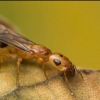
|
|
 |
Ant Keeping →
General Ant Keeping →
A Nest IdeaStarted by cooIboyJ , Mar 22 2025 |
|

|
|
 |
Market Place →
General Market Place →
Offer: Hydro-stoneStarted by Paulette , Mar 6 2025 |
|
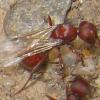
|
|
Market Place →
General Market Place →
Trade: 3D-Printing Service for your Queens/Colonies (Los Angeles, CA)Started by JonathanH , Mar 4 2025 |
|

|
||
Market Place →
General Market Place →
Ender Ants: Naturalistic Formicariums & MerchandiseStarted by Ender Ants , Feb 7 2025 |
|

|
1 user(s) are reading this topic
0 members, 1 guests, 0 anonymous users



